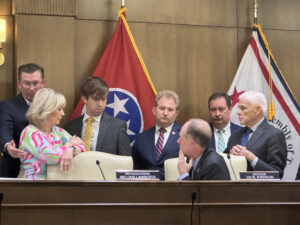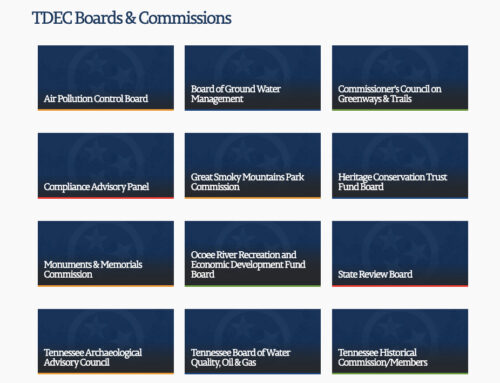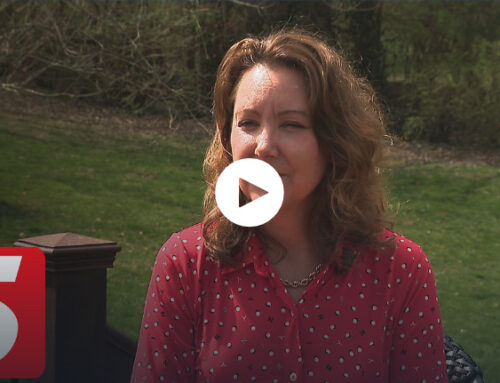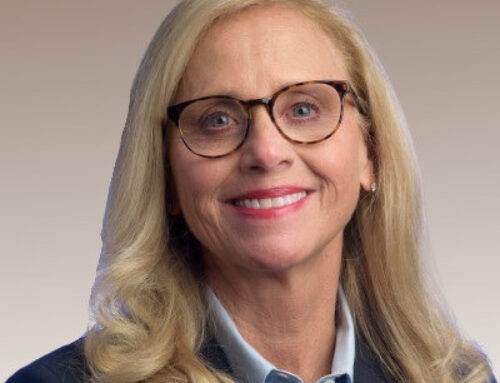
House and Senate leaders meet in a conference committee to discuss the level of transparency of a business property tax refund. (Photo by Deborah Fisher)
Attorneys fees in open meetings lawsuits
Lawmakers handed open government some wins and losses during the session that ended Thursday.
The most significant win was an open meetings bill carried by state Rep. Susan Lynn, R-Mount Juliet, and Sen. Mark Pody, R-Lebanon.
After a constituent complained to Lynn about a Wilson County School Board book review committee that met in closed sessions, Lynn dug deeper into the issue.
The result was legislation to allow someone who prevails in an open meetings lawsuit to collect attorney fees if the court finds that the governing body was willful in its actions.
The law gives the judge discretion on granting reasonable costs, including attorney fees, and notes that the court can consider any advice given by the Office of Open Records Counsel to the governing body. In other words, if the Open Records Counsel tells the governing body they are likely violating the law, and they continue to do it anyway, and someone sues and wins, the court can look at that guidance and find that the governing body was willful in closing its meetings.
Lynn, in describing the bill to fellow lawmakers, said it will add “muscle to the Sunshine Law.” She noted that unlike the public records law, the open meetings law did not have consequences for violations. If local governments refuse to comply with the open meetings law, citizens must spend their own money to go to court to force the governing body to have open meetings.
Allowing potential attorney fees and reasonable costs to citizens could help improve compliance with the law, she said, particularly when they get notification from the Office of Open Records Counsel about the law’s requirements.
The bill also redefined “meeting” to mean the convening of a governing body to make a decision or to deliberate toward a decision on any matter, which is in current law, but removed language about a quorum. The book review committee had argued that because the school board did not specify the committee needed a quorum to meet when it created the book review committee, the book review committee did not have to hold open meetings even if it met the definition of a governing body under the open meetings law.
Agenda requirement for meetings of state governing bodies
Another bill widened an existing law about agendas. The existing law passed last year required local legislative bodies (county commissions, boards of alderman and the like) to make available to the public at no charge an agenda for its meetings at least 48 hours before the meeting. The agenda “must reasonably describe the matters to be deliberated or acted upon during the public meeting.”
The bill expanded the agenda requirement to state governing bodies, which includes all state commissions, boards and councils. This bill was carried by state Sen. Todd Gardenhire, R-Chattanooga, who had carried the first agenda legislation last year, and state Rep. Rush Bricken, R-Tullahoma. Sen. Ferrell Haile, R-Gallatin, was a co-sponsor, as he was last year on the original legislation.
Tourism records, $1.5 billion in ‘refunds’ will be confidential
Other bills reduced transparency, two of which came from Gov. Bill Lee.
The first to pass and signed into law allows the tourism department to deem its contracts “sensitive” and keep them confidential. The Attorney General must agree that the records should not be disclosed to the public.
The bill was amended to require that such “sensitive” tourism agency’s records had to be unsealed after 10 years, after the tourism department spends money committed in a confidential contract, after the event for which a contract was negotiated is over, or after the contract expires — whichever comes first. The amendment also required that the tourism department not destroy the records while they are in the “confidential” period.
This was often referred to as the “Super Bowl bill” because the tourism department is expected to commit significant state funds to the NFL so it will bring the game to a new stadium being built for the Tennessee Titans in Nashville. The tourism department does not want information about the contract publicly available until after the event.
Another top priority for the governor was to give so-called refunds to companies for state taxes they paid over the past three years and to keep the identity of those companies and the amount they will get confidential. The bill was part of a scheme to rework and reduce the part of the state’s franchise tax that was based on property value after some companies (undisclosed by the state) threatened to sue.
The total amount of refunds is expected be about $1.5 billion. (It’s likely Gov. Lee’s own company will receive a refund, but the governor says he doesn’t know how much because his assets are in a blind trust.) While the House pushed for a version that would allow the names of the companies receiving the refunds to be public, along with how much they received, it capitulated to a Senate version that allowed the company identity to be disclosed on a state website for 30 days in 2025, but not how much each received.
The bill that passed would categorize the companies as receiving either less than $750, between $750 and $10,000 and more than $10,000. Any companies that applied for a refund but had not yet been granted a refund would be in a separate category called “pending.”
Autopsies of children
Another bill that was pushed by families of the children who were killed in the Covenant School shooting last year will prevent the medical examiner from releasing autopsies of children whose cause of death is listed as a homicide, but allow in-person inspection of those autopsies.
The House sponsor was Rep. Rebecca Alexander, R-Jonesborough, but the bill also had support from House Majority Leader William Lamberth, R-Portland. Lamberth worked out a compromise with open government advocates (including TCOG, the Tennessee Press Association and the Tennessee Association of Broadcasters) that would allow the in-person review of autopsies of murdered children while still preventing copies of the autopsies from being released to the public.
While the bill was passed unanimously in the House, some senators who have been staunchly in favor of access to public records voted against the bill, including Sen. Joey Hensley, R-Hoehnwald. Hensley noted that while he doesn’t conduct autopsies as a medical examiner in his district, he does sign death certificates and believes the information in autopsy reports about a homicide death conducted by government should remain open to the public.
Meetings of state college boards
One bill that failed in subcommittee was a bill that would have allowed state universities to close meetings to the public to discuss “sensitive topics.” The bill was broad. It was unclear what could be defined as “sensitive topics.” The bill also did not require that the board announce the topics before the board went into closed session. TCOG, the Tennessee Press Association and Tennessee Association of Broadcasters opposed the broad language in the bill.
Third-party intervention in public records lawsuit
A bill that passed the Senate but was tabled in the House would have prevented third-party intervention in a public records lawsuit. TCOG advocated for the bill, explaining that the only avenue for a citizen to appeal a government’s denial of a public record is in court, which can be a costly endeavor.
The public records statute that outlines how a citizen is to appeal a denial of access to a public record does not mention third parties intervening in the lawsuit, only that government officials must show why they denied access to a record in an expedited court process. But a Court of Appeals last year said that a judge could allow third parties to intervene — in this case, the parents, school and church involved in the Covenant school shooting. The public records appeal had been brought against Metro Nashville police after it declined to release the school shooter’s manifesto public, saying its investigation was ongoing.
The Covenant parents, school and church want to make the shooter’s manifesto confidential. The parents have argued that they have the copyright to the manifesto (granted by the shooter’s parents who inherited it) and that release of the writings would allow the shooter to harass the surviving children from the grave. (The shooter was killed by police at the scene.)
Although the bill was not retroactive, Covenant parents advocated against it.
TCOG and other open government advocates argued that the problem of third-party intervention is that while a citizen has a chance to be awarded reasonable costs, including attorney fees, from the government if the citizen prevails, the statute is silent about third parties who presumably would be off the hook. Thus, a third party that intervenes can drive up legal costs, basically burying the citizen in costs, even if a court finds that their claims have no basis in state law.






